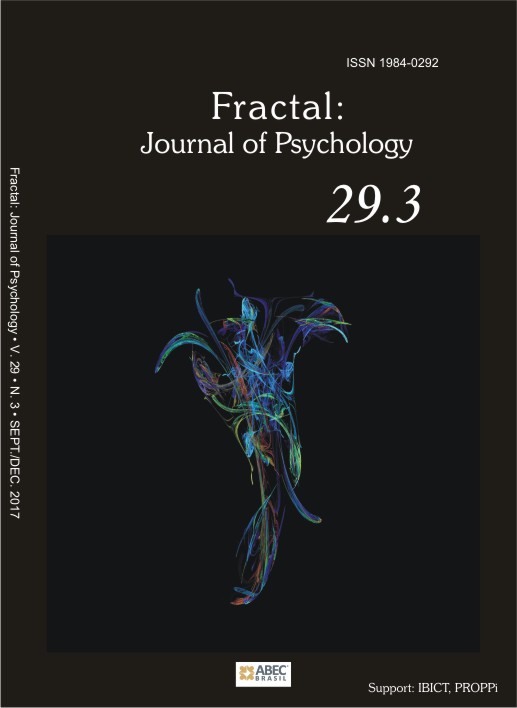Non-governmental organizations as power’s devices: from welfare to social control
DOI:
https://doi.org/10.22409/1984-0292/v29i3/1422Keywords:
power, non-governmental organization, device, control, disciplineAbstract
From a Political Psychology perspective and the Foucault’s analytical referential, the study aims to build reflections about non-governmental organizations focused on youth public as power devices. Therefore – from literature reviews and reports of situations experienced by the researcher in this kind of institution – locates strategies of power identified with the discipline and biopolitics, organized from technologies and relationships that control individuals and populations, having their actions and positions justified on the welfare government logic.
Downloads
References
AGAMBEN, G. O que é um dispositivo? Outra Travessia, Florianópolis, n. 5, p. 9-16. 2005. Disponível em: <https://periodicos.ufsc.br/index.php/Outra/article/view/12576/11743>. Acesso em: 12 dez. 2014.
BERGER, P.; LUCKMANN, T. A construção social da realidade. Petrópolis, RJ: Vozes, 1985.
DANZIATO, O. ONG’s e a prática social com adolescentes: demarcações históricas e discursivas. Ijuí, RS: Unijuí, 1998.
FERNANDES, R.; CARNEIRO, L. Ong’s anos 90: a opinião dos dirigentes brasileiros. Fortaleza: Núcleo de Pesquisa ISER, 1991. Mimeografado.
FOUCAULT, M. Em defesa da sociedade: curso no Collège de France (1975-1976). São Paulo: Martins Fontes, 2010a.
FOUCAULT, M. Estratégia, poder-saber. Rio de Janeiro: Forense Universitária, 2010b. Coleção Ditos & Escritos, v. 4.
FOUCAULT, M. Vigiar e punir: história da violência nas prisões. Petrópolis, RJ: Vozes, 2011.
HARDT, M.; NEGRI, A. Império. Rio de Janeiro: Record, 2001.
INSTITUTO BRASILEIRO DE GEOGRAFIA E ESTATÍSTICA et al. FASFIL 2005: números e dados das Fundações e Associações Privadas Sem Fins Lucrativos no Brasil (FASFIL). Disponível em: <http://www.abong.org.br/lutas_e_acoes.php?id=3474&it=5939>. Acesso em: 2 dez. 2016.
LANDIM, L. (Org.). Ações em sociedade: militância, caridade, assistência, etc. Rio de Janeiro: NAU, 1998.
MACHADO, R. (Org. e trad.). Introdução: por uma genealogia do poder. In: FOUCAULT, M. Microfísica do poder. Rio de Janeiro: Graal, 1979. p. VII-XXIII.
MENDONÇA, É. Agora eu sei! Diálogos sobre idéias que se realizaram. Olinda: Livro Rápido, 2010.
PRIORE, M. A criança negra no Brasil. In: JACÓ-VILELA, A.; SATO, L. (Org.). Diálogos em Psicologia Social [online]. Rio de Janeiro: Centro Edelstein de Pesquisas Sociais, 2012. p. 232-253. doi: http://dx.doi.org/10.7476/9788579820601
Downloads
Published
How to Cite
Issue
Section
License
Authors publishing in this journal agree to the following terms:
- Authors retain copyright and grant the journal the right of first publication, with the work simultaneously licensed under the Creative Commons Attribution License allowing sharing of the work with acknowledgement of authorship of the work and initial publication in this journal.
- Authors are permitted to enter into additional contracts separately for non-exclusive distribution of the version of the work published in this journal (e.g., publishing in an institutional repository or as a book chapter), with acknowledgment of authorship and initial publication in this journal.

This work is licensed under a Creative Commons Attribution 4.0 International License.
To the extent possible under the law, Fractal: Journal of Psychology has waived all copyright and related rights to the Reference Lists in research articles. This work is published in: Brazil.
To the extent possible under law,Fractal: Journal of Psychology has waived all copyright and related or neighboring rights to Reference lists in research articles. This work is published from: Brazil.







